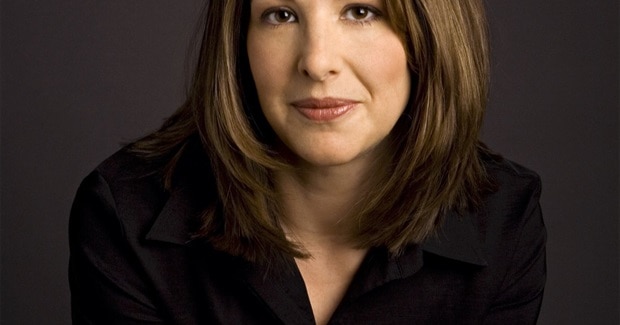
By Naomi Klein / bigissue.com via filmsforaction.org
No Logo author Naomi Klein says we must revolutionise our working lives if we are to combat climate change and save the free world…
Imagine an ordinary, full-time working week, one that requires just 21 hours of hard graft. Imagine a less frantic existence – three days on, four days off. Imagine more time with the family, more time strolling round the park, more time listening to your favourite music while cooking at a leisurely pace. A lovely idea – but does it really stack up?
The phrase ‘three-day week’ might, for readers of a certain age, conjure up memories of the early 1970s: electricity blackouts and TV broadcasts stopping at 10.30pm. Yet a growing number of people are advocating a 21-hour working week as the solution to the 21st century’s most pressing problems.
Naomi Klein is the latest big thinker to back the idea of a shorter working week and sees it as part of a transition toward a low-carbon economy and a move away from “shitty” long-hour, low-paid jobs, as she outlines to The Big Issue…
When did you begin to think free-market economics are a threat to life on Earth?
When I started hanging around with climate change deniers, it became clear they understood the current economic system could not survive if climate change was real. You can’t hold on to ideas like freedom from regulation and liberating profit in the face of a crisis like climate change, which clearly demands collective action and strong regulation. We need to cut our emissions so deeply that it threatens the whole growth model of free-market capitalism.
Some economists are now talking about moving beyond the idea of growth and our obsession with GDP. Is that a good thing?
It’s exciting that people are talking about these things. We know chasing endless growth doesn’t deliver well-being or economic stability and is leading to widening inequality. So it’s much easier to challenge now. It’s really about having a strategic economy, focusing on parts of the economy we want to expand or extract.
You write about “selective degrowth” and ideas like a shorter working week and a universal basic income to discourage “shitty work”. Do you think people are ready for those ideas?
I think people know they’re overworked. And overworking is intimately tied to a particularly wasteful model of consumption – you have no time after work to do anything other than grab a takeaway, and less time for low-consumption activities like cooking.
Does the environment movement need to become more radical?
The environmental movement has a history of elitism. Not the entire movement – there have been grassroots outsiders engaging in confrontation tactics – but there’s a history of conservation and hunting clubs, bringing in royalty and so on. It’s not exactly been part of the left, which is why there’s been suspicion between progressive political movements and the environmental movement. There’s a lot of work to be done between natural allies.
So it’s time to stop pretending big companies are going to change everything?
There’s been a bias among many big environmental organisations to build coalitions with other elite groups. You’d be amazed by how much time green groups in the US spend thinking about how to get the Pentagon using green energy. Really? Is that the best we can hope for?
The idea we’re all guilty is demobilising because it prevents us directing our anger at the institutions most responsible
And it’s time to get angry?
Yes – I think people should be angry. A lot of environmentalist discourse has been about erasing responsibility: “We’re all in this together… We’re all equally responsible.” Well, no – you, me and Exxon (Mobil) are not all in this together.The idea we’re all guilty is demobilising because it prevents us directing our anger at the institutions most responsible.
Do you think working people will see the connection between climate change and their own pressing struggles?
Most people don’t have good choices. They use fossil fuels because they have to – not because they love Exxon or Shell. We’re seeing an important discussion around fuel poverty. Fossil fuels aren’t delivering energy people can afford easily, if about a quarter of people in this country are choosing not to turn the heat on at times because they can’t afford the bills. I think people will start to see that action on climate change can address pressing issues.
How do you stay optimistic when the picture looks so bleak?
I don’t think you can engage with this material without being on an emotional rollercoaster. Our elites have never treated climate change as a real crisis, they only pay lip service to it. But a wide social movement can change that. Pressure from below can force recalcitrant elites to respond.
This Changes Everything: Capitalism vs the Climate, by Naomi Klein (£20, Allen Lane), is out now


